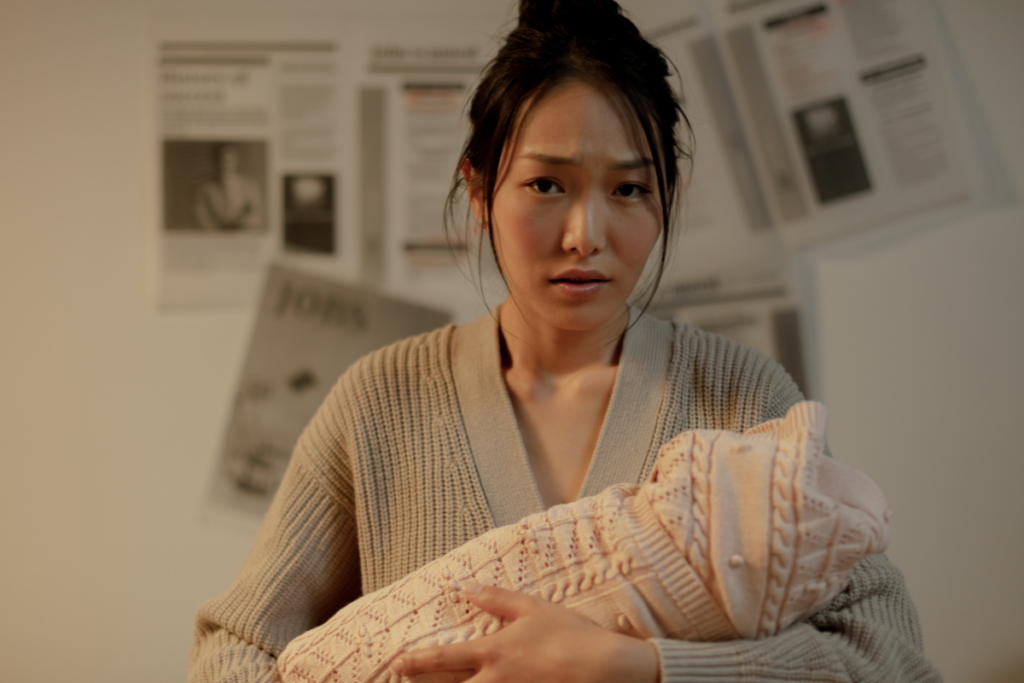Postpartum Mental Health Beyond Depression
Maddison Henley PA-C

Bringing a new life into the world is often portrayed as a time of unparalleled joy. Yet, for many new mothers, this period is fraught with emotional upheavals that extend beyond the commonly discussed postpartum depression. Conditions such as postpartum anxiety, obsessive-compulsive disorder (OCD), and psychosis can profoundly impact new mothers, often remaining in the shadows due to lack of awareness.
The Spectrum of Postpartum Mental Health
While most people have heard of postpartum depression, the emotional landscape after giving birth is far more layered. The postpartum period can bring about a wide spectrum of mental health conditions — some subtle, others more intense — that often go unnoticed or unspoken. These aren’t just fleeting mood swings or “baby blues”; they can deeply impact how a new parent functions, feels, and connects with their baby. The earlier these conditions are recognized and addressed, the better the outcome for both mother and child. It’s time we widened the conversation.

Postpartum Anxiety: More Than Just Worry
Postpartum anxiety encompasses excessive and persistent worries that can interfere with a mother’s ability to function and care for her newborn. Studies suggest that approximately 1 in 5 women and 1 in 10 men may experience anxiety during the perinatal period, which includes pregnancy and the first year postpartum.
Symptoms:
- Constant worry that feels uncontrollable
- Racing thoughts
- Sleep disturbances unrelated to the baby’s needs
- Physical symptoms like dizziness, nausea, and heart palpitations
Impact:
Unlike the transient “baby blues,” postpartum anxiety can persist and intensify, affecting mother-infant bonding and the mother’s overall quality of life.
Seeking Help:
If you find yourself overwhelmed by persistent worries, reaching out to a healthcare provider is essential. Treatments may include therapy, support groups, and, in some cases, medication.
Postpartum Obsessive-Compulsive Disorder (OCD): Intrusive Thoughts and Compulsions
Postpartum OCD is characterized by intrusive, unwanted thoughts (obsessions) and repetitive behaviors or mental acts (compulsions) aimed at reducing the distress caused by these thoughts. Research indicates that the cumulative incidence of new OCD diagnoses is approximately 9% by six months postpartum.

Symptoms:
- Intrusive thoughts about harming the baby, despite having no intention to act on them
- Excessive cleaning or checking behaviors to prevent harm
- Avoidance of situations that trigger obsessions
Impact:
These obsessions and compulsions can be distressing and time-consuming, leading mothers to question their ability to care for their child.
Seeking Help:
Early intervention is key. Cognitive-behavioral therapy (CBT), particularly exposure and response prevention (ERP), has been effective in treating postpartum OCD.
Postpartum Psychosis: A Rare but Severe Condition
Postpartum psychosis is a severe mental health emergency that involves a break from reality, including hallucinations and delusions, often within the first two weeks after childbirth. This condition affects approximately 1 to 2 out of every 1,000 deliveries.
Symptoms:
- Delusions or strange beliefs
- Hallucinations (seeing or hearing things that aren’t there)
- Severe mood swings
- Confusion and disorientation
- Paranoia and suspiciousness
Impact:
Due to the risk of harm to both mother and child, postpartum psychosis requires immediate medical attention.
Seeking Help:
Emergency intervention is critical. Treatment may involve hospitalization, medication, and intensive psychiatric care to ensure safety and recovery.
The Importance of Awareness and Support
Understanding that postpartum mental health extends beyond depression is crucial for early detection and intervention. New mothers should feel empowered to seek help without fear of judgment. Healthcare providers play a pivotal role in screening for these conditions and providing appropriate referrals and treatments.
Final Thoughts
If you’re a new mother experiencing any of these symptoms, know that you’re not alone, and help is available. By broadening the conversation around postpartum mental health to include conditions like anxiety, OCD, and psychosis, we can foster a more supportive environment for mothers navigating the complexities of new parenthood.
Responsibly edited by AI
Other Blog Posts in
Animo Sano Psychiatry is open for patients in North Carolina, Georgia and Tennessee. If you’d like to schedule an appointment, please contact us.
Get Access to Behavioral Health Care
Let’s take your first step towards. Press the button to get started. We’ll be back to you as soon as possible.ecovery, together.




